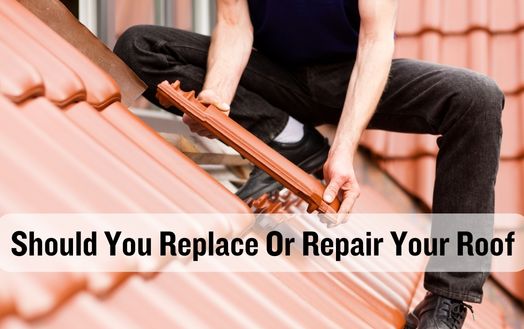
Should you replace or repair your roof? It’s a question that plagues homeowners like a persistent puzzle.
As a professional writer, I aim to provide a balanced perspective on this matter. The decision ultimately boils down to a myriad of factors, from cost considerations to the age of your roof, the severity of damage, and even the roofing material options. However, one must not overlook the energy efficiency benefits, safety considerations, environmental impact, and warranty coverage.
So, buckle up, dear reader, as we embark on this roof-related rendezvous to uncover the truth behind this perplexing predicament.
Before replacing or repairing your roof, carefully assess your budget and consider financing options. I understand the importance of cost when making a decision because I want innovation and the best for my home.
Roof repair can be cost-effective for minor, localized damage. It involves repairing damaged or worn roof sections. Immediate roof repair can prevent further damage and extend its lifespan. However, long-term costs must be considered. Although repairs may seem cheaper at first, frequent repairs can add up, making roof replacement more cost-effective.
However, roof replacement requires a new roof. Although expensive, this has many benefits. A new roof improves energy efficiency, aesthetics, and weatherproofing. Modern roofing materials and technologies offer innovative features that improve roof functionality and durability.
The cost of roof replacement should include materials, labor, and any additional costs like permits or disposal fees. However, a high-quality roof replacement can reduce energy costs and future repairs, saving money over time.
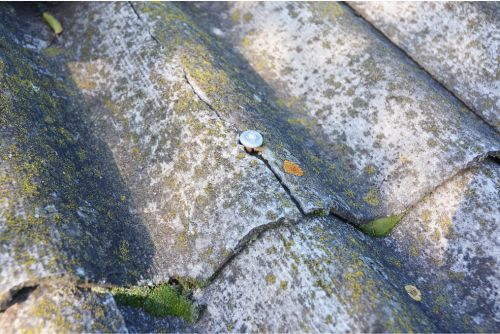
The age of your roof determines whether it needs replacement or repair. Aged roofs are more susceptible to damage and wear. This is especially true in extreme weather or polluted areas. If your roof is old, replacing it may be cheaper than repairing it.
Roofs last 20–25 years, depending on materials and maintenance. However, advances in roofing technology have produced more durable materials. Some synthetic roofing materials can last a lifetime, while metal roofs can last 50 years.
How do you know if your roof needs replacement or repair? Repair frequency is a key indicator. If you constantly repair leaks or shingles, your roof may be failing and needing replacement.
Consider your roof’s overall condition. A roof with significant water damage, sagging, or structural issues may not be repairable. To ensure home safety and longevity, a replacement is likely the best option.
If I’m constantly fixing leaks or shingles, my roof may need replacement. The extent of roof damage must be assessed to determine the best repair method. Small leaks or missing shingles can be fixed with simple repairs. However, severe damage may require a roof replacement.
The severity of the damage determines whether to repair or replace your roof. Patching extensive damage may only be temporary. Over time, the issues may worsen, causing more damage and costly repairs. Roof replacement is a long-term solution that prevents future issues.
Severe damage can also weaken the roof. This can increase extreme weather damage and safety risks. You can protect your home by replacing the roof.
Consideration of damage severity allows for roofing material and technique innovation. Technology has made roofing more durable and efficient. By replacing your roof, you can upgrade to stronger materials and better insulation, improving your home’s energy efficiency.
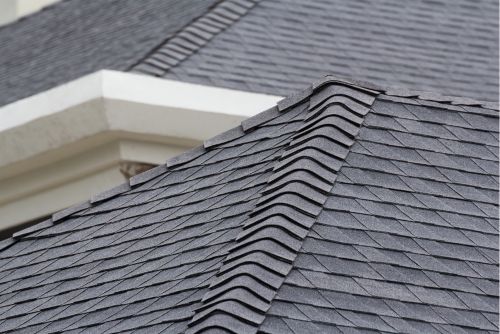
I recommend exploring different roofing materials for your replacement. The roofing materials you choose for roof repair or replacement can affect your home’s durability, energy efficiency, and aesthetics. Since roofing technology has advanced, there are more options than ever.
A popular option is asphalt shingles. They are affordable, easy to install, and available in many colors and styles. Asphalt shingles also withstand harsh weather. They resist leaks and high winds, making them a reliable homeowner option.
For a more innovative and sustainable roofing option, try metal, clay tiles, or synthetic materials like rubber or plastic. Due to their heat reflection and cooling cost savings, metal roofs last longer. Clay tiles, on the other hand, are durable and fire-resistant and look elegant.
Assess the structural damage to your roof and consider local climate and environmental factors before making a decision. Consult a roofing professional to determine the best roofing material for your needs and preferences.
Due to rising energy costs and environmental concerns, it’s important to compare roofing materials’ energy efficiency. Choosing an energy-efficient roof replacement or repair material can reduce energy use and costs.
Installing an energy-efficient roof reduces your carbon footprint and energy costs. The latest roofing materials reflect more sunlight and absorb less heat, keeping your home cooler in the summer. This reduces air conditioning use, lowers energy bills, and has an environmental impact.
Using energy-efficient roof repair materials has similar benefits. By properly insulating and sealing your roof, you can maintain year-round comfort in your home. Less use of heating and cooling systems reduces energy use and utility bills.
In addition to environmental and financial benefits, energy-efficient roofing materials can improve home comfort and livability. These materials control temperature, eliminating hot and cold spots and making your home more comfortable.
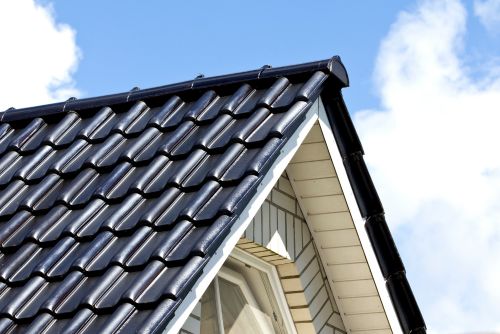
After discussing the energy efficiency benefits of choosing the right roofing material, let’s discuss its long-term durability.
Durability is key when choosing between roof replacement and repair. As an innovative audience, you want a roof that lasts and protects your home.
Any roof needs long-term durability to withstand weather and damage. Durability should be your top consideration when replacing or repairing your roof. Buy a durable roof to avoid frequent repairs and replacements.
Roof durability depends on the material choice. Metal, slate, and clay tiles are weatherproof and durable. These durable materials protect against moisture, wind, and UV rays and last longer than asphalt shingles.
New roofing materials improve durability. Polymer composite roofing materials look like traditional materials but resist impact, fire, and extreme weather.
When choosing between roof replacement and repair, consider future leaks for durability. Water damage from deteriorated shingles or other roofing issues can be costly and threaten your home’s structure. As an inventive homeowner, you must choose the option that fixes current issues and prevents future leaks.
The extent of roof damage must be assessed before repair. If only a few shingles are damaged, a repair may work. Please note that repairing a roof with multiple damaged areas is difficult. It’s easier to miss weak spots, which can lead to future leaks.
Roof replacement is a more comprehensive solution to future leaks. A new roof eliminates damaged shingles and other roofing issues, giving you a fresh start. Innovative roofing materials offer superior durability and leak protection thanks to roofing technology. A new roof allows you to add solar panels or green roofing, improving your home’s functionality and energy efficiency.
Given the possibility of future leaks, roof replacement is a better and more innovative option. Roof repair may seem cost-effective at first, but recurring leaks and water damage can increase costs. By installing a new roof, you can rest easy knowing your home has been leak-proof for years.
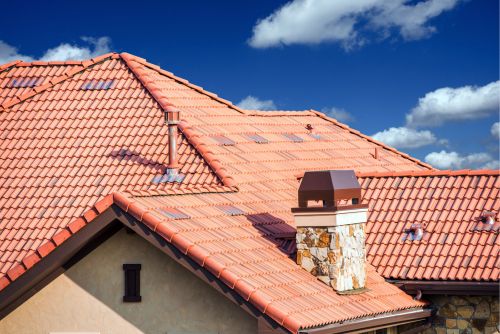
Your home’s value can be affected by a roof replacement or repair. The value of your home depends on its roof. A well-maintained roof protects your home from the elements and improves its appearance. However, a damaged roof can lower home value and deter buyers.
When repairing or replacing your roof, consider the long-term benefits. Your home looks better and is worth more with a new roof. Buyers prefer properties with newer, well-maintained roofs. They feel secure knowing they won’t have to pay for costly repairs or replacements soon.
Your home’s energy efficiency can also improve with a new roof. Energy-efficient shingles and solar panels can lower energy use and utility bills. Eco-conscious buyers are willing to pay more for sustainable homes with this feature.
However, the effect on home value depends on location and the real estate market. In a competitive market, a new roof can set your home apart. It may attract more buyers and raise offers.
Insurance coverage determined the extent of my roof repair or replacement. When replacing your roof, know how your insurance can help. As an inventive homeowner, I was pleased to find that my insurance policy covered roof repair and replacement, depending on damage.
A severe storm damaged my roof, so I called my insurance company to assess the damage. They sent an adjuster to assess the damage and determine coverage. The fact that my policy covered roof repair and replacement relieved me of the financial burden.
Working with my insurance company and filing a claim was surprisingly easy. I received a list of approved roof repair and replacement contractors. This ensured professional and code-compliant work and sped up the process.
Thanks to my insurance, I could choose the best roof repair or replacement option. The extent of the damage, the age of my roof, and the contractors’ recommendations led me to replace it. My home looks better and is worth more after this decision.

The best roof solution for my roof depended on the local climate. Living in an area with strong winds and heavy rainfall required me to carefully consider whether to repair or replace my roof.
Local climate factors influenced decision-making. My area had lots of wind damage, especially during storms. Regular exposure to strong winds can loosen or blow off shingles, compromising roof integrity. Repairing damaged shingles may seem like a quick fix, but it may only be temporary. I decided a roof replacement was better due to wind damage’s long-term effects.
My region also had unpredictable weather, with sudden temperature changes and heavy rainfall. These factors can age roofing materials. A roof repair may fix the immediate problems, but it may not withstand harsh weather. Roof replacement allowed me to use more durable materials that could withstand the local climate, improving protection and longevity.
When choosing between roof repair and replacement, weigh the pros and cons of DIY and professional work. Both options have pros and cons, so consider your skills, time, and budget. Three considerations will help you decide:
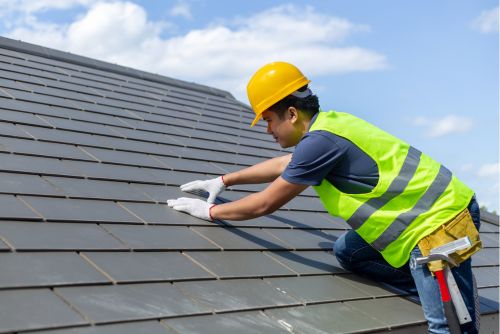
Safety is paramount when repairing or replacing roofs. Safety must be a top priority when repairing or replacing a roof. Before considering if should you replace or repair your roof, take these insights into consideration.
A professional roofing contractor can help you avoid hazards and complete the job safely and efficiently. If not repaired properly, even minor roof damage can be dangerous. If you’re unfamiliar with heights, climbing your roof without safety gear can be dangerous. Professional roofing contractors know how to repair safely.
Roof replacement projects must be planned and executed carefully to avoid accidents. A professional roofing contractor has the safety equipment and training to do the job, giving you peace of mind. They also know how to spot structural issues and weak spots to make the workplace safer.
Advanced roofing safety equipment and methods have resulted from innovation. Professional roofing contractors follow safety standards and use innovative methods to protect workers. Safety harnesses, fall protection systems, and other tools help them work safely.
As I study the environmental impact of roof repairs or replacements, we must consider our actions. Our roof replacement or repair choices can affect the environment. Consider these three crucial points:
When choosing roof repairs or replacements, consider the environment. We can help the environment and protect our roofs by using energy-efficient materials, sustainable practices, and water management.
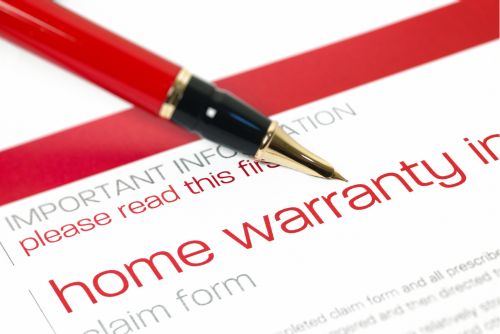
I found warranty coverage important for roof repairs and replacements. A reliable warranty can give you peace of mind and protect your investment.
Roof replacement or repair requires knowledge of warranty terms and conditions. Replacement of a damaged roof requires a warranty from a professional roofing contractor. A warranty protects against material and workmanship defects. If any issues arise during the warranty period, the contractor will fix them for free.
Roof repairs need warranty coverage too. Repairs may seem temporary, but a warranty protects against future issues. A reputable roofing contractor should provide a warranty on the repaired area to ensure its longevity.
Read the warranty terms and conditions carefully. Check the warranty length, coverage, and exclusions. The roofing contractor offering the warranty should also be considered for reputation and reliability.
You need roofing experts’ advice to make informed roof replacement or repair decisions. Consulting with roofing experts will help you understand your roof’s condition and the best course of action. There are three reasons roofing experts should be consulted:
Consulting roofing experts is essential when choosing a roof repair or replacement. They will advise you on the best roof option to prolong its life and protect your investment. To learn more and keep your roof healthy, contact these experts.
After considering all the factors such as cost, age, damage severity, material options, energy efficiency, safety, environmental impact, and warranty coverage, it’s crucial to consult with roofing experts before making a decision – should you replace or repair your roof. They’ll provide expert advice based on your specific situation and help you determine whether to replace or repair your roof.
Don’t hesitate to seek professional guidance for a well-informed choice that ensures the longevity and safety of your home.
Whether I have the skills and knowledge to repair my roof myself is important. I may be better off hiring a professional to do the job efficiently. They have extensive roof repair experience and ensure proper and safe work.
Professionals have access to specialized tools and materials that improve results.
Replacing my roof can definitely increase the value of my home.
A new roof not only enhances the overall appearance, but also provides improved energy efficiency and protection from the elements. It shows potential buyers that the house has been well-maintained and reduces the need for future repairs.
Investing in a roof replacement can attract more buyers and potentially lead to a higher selling price, making it a smart choice for increasing the value of my home.
Roof lifespan depends on the local climate. Heavy rain, snow, or strong winds can cause long-term damage. High humidity promotes mold and mildew growth, while intense sunlight accelerates shingle deterioration.
Consider these factors when deciding whether to replace or repair your roof because they can affect its longevity and performance.
My homeowner’s insurance policy may cover the cost of roof repairs or replacement. It’s important to review the policy details and contact my insurance provider to understand the specific coverage.
Factors such as the cause of the damage, age of the roof, and deductible amount may affect the amount covered.
It’s always a good idea to document the damage and keep records of any repairs or replacements for insurance purposes.
The environmental impact of roofing materials must be considered when assessing their sustainability. Asphalt shingles contribute to landfill waste and have a short lifespan. However, metal and solar panels are more durable and efficient.
Materials that insulate heat reduce energy use. You must weigh the environmental pros and cons of each material before making a choice.